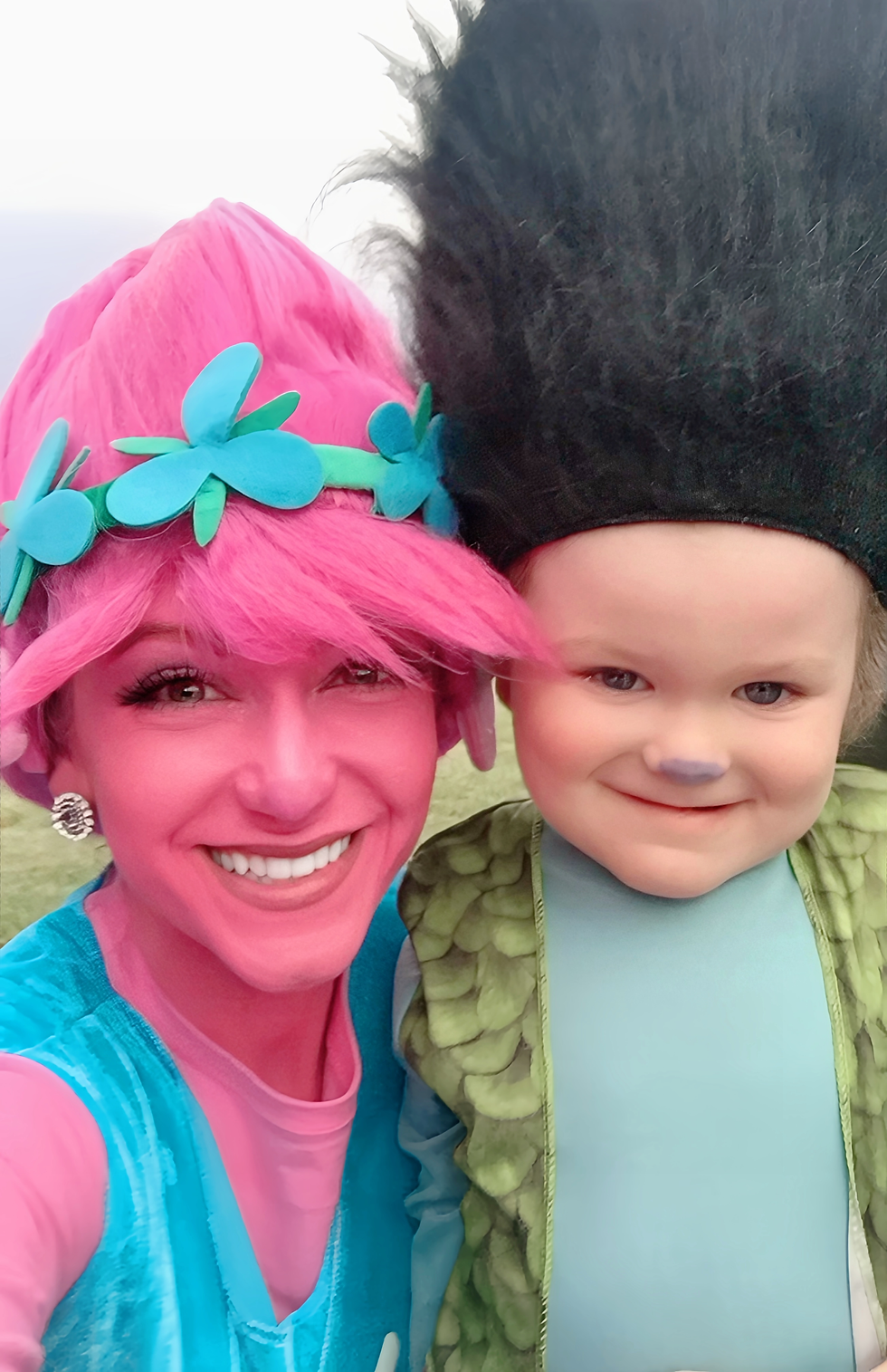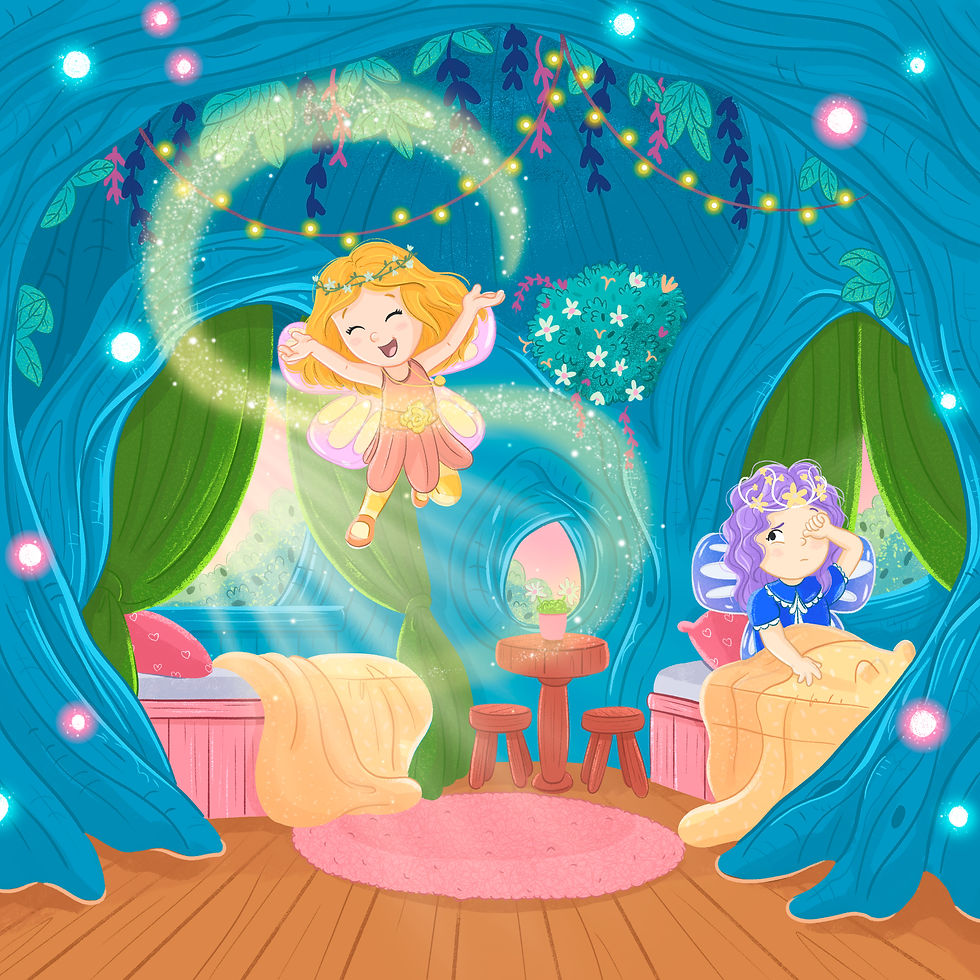The Magic of Pretend Play: Why Costumes and Imagination Matter More Than You Think
- Ashley Bullock
- May 26, 2025
- 3 min read
Updated: Jun 8, 2025

There’s something undeniably magical about watching a child step into character. One minute they’re a quiet observer, the next they’re roaring like a dragon, twirling like a fairy, or giving orders like a tiny space ranger. Their shoulders roll back, their voices change, and their entire world expands. This is the power of pretend play—and it’s far more than cute make-believe. It’s a vital part of healthy childhood development.
As someone who has always loved dressing up (and still does any chance I get!), I can say with full confidence that pretend play is one of the most joyful, freeing, and transformative experiences for both kids and adults. Whether it’s a costume pulled from a dress-up bin or an impromptu crown made from paper, something truly special happens when we step into a new role.
What Is Pretend Play?

Pretend play, also called imaginative play or dramatic play, is when children use their creativity and imagination to create stories, characters, and scenarios. This could be playing house, pretending to be animals, dressing up as superheroes, or hosting tea parties with stuffed animals. It can happen with costumes, props, or nothing at all but the rich world in their minds.
The Benefits of Pretend Play for Kids

Pretend play does more than entertain—it builds brainpower, empathy, and confidence in ways that few other activities can. Here are just a few of the powerful developmental benefits:
1. Emotional Intelligence & Empathy
When children pretend to be someone else, they begin to understand different perspectives. This builds empathy and emotional awareness, both essential for forming healthy relationships.
2. Language & Communication Skills
Acting out stories encourages kids to use descriptive language, negotiate roles, and expand their vocabulary. It helps them express themselves and communicate more clearly with others.
3. Problem-Solving & Critical Thinking
Every pretend scenario presents a new problem to solve: How do we rescue the princess? What does the dragon want? Who sets the table at our pretend dinner? These moments spark creativity, collaboration, and flexible thinking.
4. Emotional Regulation
Kids often act out real-life experiences through pretend play. This helps them process emotions, fears, and even trauma in a safe and empowering way.
5. Confidence & Independence
There’s something empowering about being the hero of your own story. Pretend play gives children the opportunity to feel brave, capable, and free to express themselves in a low-pressure environment.
"Children who engage in imaginative play show stronger social, emotional, and problem-solving skills."(Source: American Academy of Pediatrics)
Why Costumes Amplify the Magic of Pretend Play

Costumes aren’t necessary for pretend play, but let’s be honest—they make it so much more fun. Putting on a costume activates something inside us. For kids, it gives permission to be bold, dramatic, silly, or powerful. For adults, it reconnects us to our inner child.
Personally, I’ll take any excuse to dress up. Whether it’s Tinkerbell wings, a princess gown, or a fairy crown, I feel more alive and creative when I step into character. And soon, I’ll be stepping into the roles of Sunny and Luna, two magical fairies who help children embrace mindfulness, gratitude, and their own sparkling uniqueness.
How to Encourage Pretend Play at Home

Here are some easy ways to inspire creative play and dress-up fun in your home:
Create a dress-up corner with simple props, scarves, hats, and costumes.
Follow their lead. Let your child guide the story and jump in when invited.
Be silly together! Don’t be afraid to get on the floor and play too.
Rotate props and themes to keep the excitement fresh.
Affirm their creativity by saying things like, “That was such a clever idea!” or “You were really brave in your story!”
Final Thoughts on the Magic of Pretend Play

Pretend play is more than just fun—it’s foundational. It builds whole-hearted humans. It strengthens the mind, nurtures the soul, and helps children (and adults!) process and explore the world around them.
Whether it’s imaginative play for toddlers or creative roleplay for older kids, encouraging dress-up and storytelling helps build the foundation for emotional and cognitive growth.
So the next time your little one wants to be a superhero, a squirrel, a queen, or a cupcake, lean in. Grab a cape, put on a crown, and join them. You might just rediscover a little magic in yourself, too.
And if you're anything like me, stay tuned... because there are two fairies on a mission to bring mindfulness, magic, and joy to families everywhere.
Sunny & Luna are coming soon — a whimsical book series full of magical pretend play and mindful adventures.




.png)



Comments